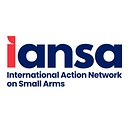The threat of gun violence: a constant companion for women
Violence as women’s lived reality occurs as a continuum in private and public spaces. As UNODC noted, in 2017, women were the victims in 82 percent of homicides perpetrated by intimate partners. Women also bear the heaviest burden of lethal victimization from gender stereotypes and inequality. In the Caribbean, the proliferation and misuse of illicit small arms in the last three decades has added another lethal layer to women’s burden of protecting themselves in their homes, on the streets, and in their communities with high levels of gun violence.
Violence involving the use of a firearm resulting in homicide is not commonly experienced by Caribbean women. However, the potential of an increase in this form of violence should concern us. This is especially true given that in 2018 at least 3,529 women were femicide victims in 25 countries in Latin American and the Caribbean.
In Trinidad and Tobago for example, female victims of gun homicide perpetrated by a former partner represent less than 10% of the gun homicides in the country. But in a country where gun homicides and gang violence are so pervasive, an undercurrent is developing that needs urgent attention.
The potential harm to women from men’s acquisition of firearms cannot be underestimated. Easy access to guns can increase women’s victimization. This is especially so as rising levels of insecurity in the Caribbean have increased applications for Firearms Users Licenses (FUL) and the granting of such licenses for firearms and ammunition. FUL applicants are 98% men.
Some regional governments have responded by preventing the issuance or revoking the FULs of individuals convicted of domestic violence. For example, in Antigua and Barbuda, FUL applications require the signature of the spouse even if they are separated for up to two years. In Trinidad and Tobago, an interview with the spouse of the FUL applicant is part of the application process.
While such measures are intended to protect women in the domestic space, they are fraught with loopholes and often do not take into account intimidation that women may experience by the applicant. Additionally, gender responsive small arms control has not been widely adopted by regional governments. The result is a continuation of the ‘masculinist’ approach to small arms control and gun ownership is still seen as central to masculine identity. This is a potentially lethal formula for Caribbean women’s security in both private and public spaces.
The absence of public policy on gender responsive small arms control increases the likelihood that women will not be protected from armed violence in their homes and elsewhere. Women will also not be included in solution-focused dialogue to prevent and reduce gun violence. This situation requires urgent attention and correction, and gender responsive small arms control must be mainstreamed into government efforts to improve citizen security, and to meet the Regional Gender Agenda as well as international obligations under the Beijing Platform for Action and other international human rights law frameworks.
Folade Mutota is a founder of the Women’s Institute for Alternative Development (WINAD) and Caribbean citizen born and living in Trinidad and Tobago. She brings her womanist perspective to her work on security and small arms control, along with her advocacy skills developed over a lifetime of community engagement, social policy development, research, and leading change.
This blogpost was written as part of IANSA’s “Civil society engagement in support of gender mainstreamed policies, programmes and actions in the fight against small arms trafficking and misuse, in line with the Women, Peace and Security agenda”, which is funded by the United Nations. This document was produced with the financial assistance of the United Nations through contributions received from the European Union. The views expressed herein are those of the Implementing Partner and do not necessarily reflect those of the United Nations or the European Union.
